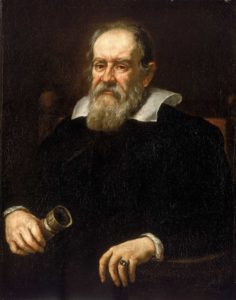June 22 is National Chocolate Eclair Day
National Onion Rings Day
English explorer Henry Hudson discovered the Hudson Strait and the immense Hudson Bay on his final expedition, while still searching for the Northwest Passage. On this date in 1611, after wintering on the shore of James Bay, Hudson wanted to press on to the west, but most of his crew mutinied. The mutineers cast Hudson, his son, and seven others adrift; the Hudsons and their companions were never seen again.
 1633 Galileo Galilei was forced by the Inquisition to “abjure, curse, and detest” his Copernican heliocentric views. “I, Galileo…do swear that I have always believed, do now believe and, with God’s aid shall believe hereafter, all that which is taught and preached by the … church. I must wholly forsake the false opinion that the sun is the center of the world and moves not, and that the earth is not the center of the world and moves….” He was then condemned to the “formal prison of the Holy Office” for an undetermined amount of time which would be served at the pleasure of his judges, and required to repeat the seven penitential psalms once a week for three years. The next day the Pope specified the prison sentence should be house arrest. Galileo was the first person to reveal that the Milky Way galaxy was composed of stars.
1633 Galileo Galilei was forced by the Inquisition to “abjure, curse, and detest” his Copernican heliocentric views. “I, Galileo…do swear that I have always believed, do now believe and, with God’s aid shall believe hereafter, all that which is taught and preached by the … church. I must wholly forsake the false opinion that the sun is the center of the world and moves not, and that the earth is not the center of the world and moves….” He was then condemned to the “formal prison of the Holy Office” for an undetermined amount of time which would be served at the pleasure of his judges, and required to repeat the seven penitential psalms once a week for three years. The next day the Pope specified the prison sentence should be house arrest. Galileo was the first person to reveal that the Milky Way galaxy was composed of stars.
1740 – King Frederik II of Prussia ended torture and guaranteed religion & freedom of the press.
1774 – The British passed the Quebec Act on June 22, 1774, setting out rules of governance for the colony of Quebec in British North America.
1870 – The U.S. Congress created the Department of Justice.
1933 – Germany became a one political party country when Hitler banned parties other than the Nazis on June 22, 1933.
A Japanese submarine shelled Fort Stevens at the mouth of the Columbia River in 1942.
U.S. President Franklin Roosevelt signed the “GI Bill of Rights” June 22, 1944 to provide broad benefits for veterans of the war.
From Today in Science
1969 – The Cuyahoga River caught fire, triggering a crack-down on pollution in the river. In Cleveland, Ohio, oil-sodden floating debris on the Cuyahoga River ignited (perhaps by sparks from a passing train) and burned with flames reported up to five stories high. Although fire-fighters extinguished the blaze in a half-hour or so, it caused $50,000 in damage. For a century the river had been an open sewer for industrial waste, through the times when factory production seemed more important than worrying about the environment. Several fires had happened in the prior hundred years, but attitudes changed to outrage as this time, national attention was aroused. It became one of several disasters that led to the Clean Water Act and the Environmental Protection Agency (EPA). Determined remedial action for decades since has resulted in cleaner water, and improving aquatic life.
1970: U.S. President Richard Nixon signed an extension of the Voting Rights Act of 1965. It required the voting age in the United States to be 18.
From Today in Science
In 1978, evidence of the first moon of Pluto was discovered by astronomer James W. Christy of the Naval Observatory in Flagstaff, Ariz. when he obtained a photograph of Pluto that showed the orb to be distinctly elongated. Furthermore, the elongations appeared to change position with respect to the stars over time. After eliminating the possibility that the elongations were produced by plate defects and background stars, the only plausible explanation was that they were caused by a previously unknown moon orbiting Pluto at a distance of about 19,600 kilometers (12,100 miles) with a period of 6.4 days. The moon was named Charon, after the boatman in Greek mythology who took the souls of the dead across the River Styx to Pluto’s underworld.
1992 – The U.S. Supreme Court unanimously ruled that hate-crime laws that ban cross-burning and similar expressions of racial bias violated free-speech rights.
1998 – The U.S. Supreme Court ruled that evidence illegally obtained by authorities could be used at revocation hearings for a convicted criminal’s parole.
